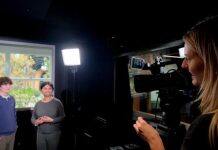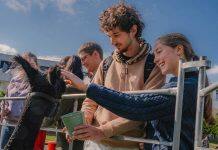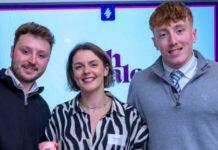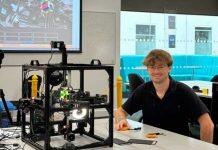Seven AUT research projects have received funding in the Health Research Council’s (HRC) annual Career Development Awards, announced Monday 28 November 2022.


The projects are across the three categories – general career development awards, Māori Health Research career development awards and Pacific Health Research career development awards.
The Awards are key to bolstering and sustaining Aotearoa New Zealand’s health research workforce. Fifty-two researchers across the country will benefit from the $11.1 million awarded in this round.
The AUT recipients and their research proposals are:
Career Development Awards – General category
Clinical Research Training Fellowship: Mr Connor Silvester, Mental Health in Elite Athletes, 36 months, $ 260,000.00
The development of a mental health screening tool for use within New Zealand/Aotearoa elite sporting populations to facilitate an improved understanding of the prevalence of mental illness in elite athletes in New Zealand/Aotearoa, guide the development policy and practice recommendations in a culturally appropriate manner, and ultimately assist organisations in promoting athlete wellbeing.
Māori Health Research Career Development Awards
Māori Health Masters Scholarship: Miss Lena Kemp, Wāhine Māori experiences of recovery from addiction, a Kaupapa Māori perspective, 12 months, $ 30,632.00
This proposal uses a Kaupapa Māori methodology including Mana Wāhine research theory and Pūrākau analysis methods to explore the realities of wāhine Māori and their whānau who are recovering from alcohol and other drugs (AOD) addiction, filling a gap in qualitative research on the lived experience of wāhine Māori recovering from AOD additon.
Māori Health Masters Scholarship: Miss Jordan Tane, Ko te mauri, he mea huna ki te Moana, 12 months, $ 30,631.00
A Kaupapa Māori approach to whānau violence prevention and harm reduction using communication (graphic) design to help collect, transfer and disseminate knowledge gathered from the stories, experiences and solutions of whānau in a co-construction wananga, to benefit other whānau.
Pacific Health Research Career Development Awards
Pacific Health Postdoctoral Fellowship: Dr Falegau Melanie Lilomaiava Silulu, Is Tāmaki Makaurau an age-friendly and healthy place for Pacific people to age?, 36 months, $ 388,938.00
An exploratory study of whether Tāmaki Makaurau is an age-friendly and healthy place for Pacific people to age, as the number of Pacific people in New Zealand aged 65 years and older is expected to more than double from 21 300 in 2018 to 46 700 by 2034. This study will add to the body of knowledge on the ageing Pacific population’s health and wellness whilst living in New Zealand and inform policy and provision of health care that is inclusive of Pacific elders’ needs.
Pacific Health Knowledge Translation Grant: Mrs Litiuingi Ahio, Auckland University of Technology, Kupesi ‘o e Nofo ‘a Kainga, 6 months, $ 5,000.00
The purpose of this proposed study is to translate research findings into community knowledge and action, exploring the experiences of Tongans living in a nofo ‘a kāinga, managing Long-term conditions (LTCs) within the New Zealand healthcare system. Like other developed countries, New Zealand healthcare authorities have recognised the need for greater support mechanisms for people with LTCs but to date little attention has been given to the experiences of Pacific population with LTCs in Aotearoa. Therefore, a summary brochure of the strength-based approach of Kupesi ‘o e nofo ‘a kāinga findings will be disseminated to better support the Tongan community managing LTCs within Aotearoa.
Pacific Health Knowledge Translation Grant: Dr Soana Muimuiheata, Family Wellbeing – Food and diabetes management, 6 months, $ 5,000.00
This project investigates the complex set of influences on food choices for Tongans managing diabetes and the role of family considerations and individual needs.
Pacific Health Knowledge Translation Grant: Dr Soana Muimuiheata, Concept of Kato Polopola – Holistic approach to diabetes management, 7 months, $ 5,000.00
Diabetes services for Tongan people with T2DM require a Tongan worldview and holistic approach that encompass mo’ui lōtolu, wellbeing of sino (body), ‘atamai (mind), and laumālie (spirit/soul) to fulfil fatongia (duty/obligations). This approach is symbolised by Kato Polopola, a Tongan food basket. Food practices and diabetes management is never about an individual. It is always about wellbeing within collective communal living. The importance of receiving practical and meaningful information that involves family, church, and community.







































